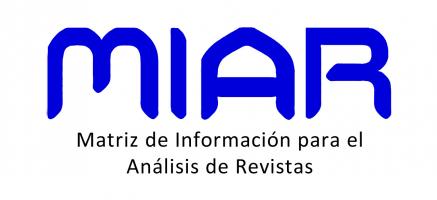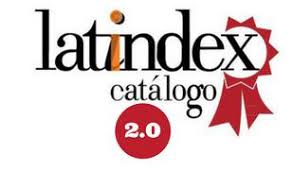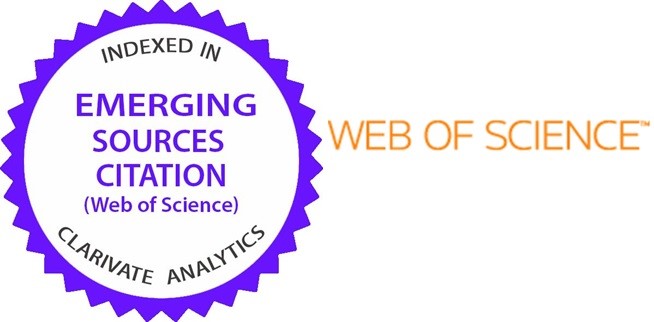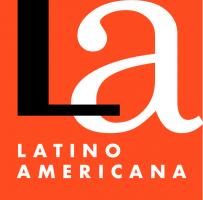Susurros y reflejos: revisitando el fenómeno del doble en “William Wilson” de E.A. Poe
Resumen
Si una hipótesis intuitiva nos indica que el 90% de los personajes literarios aparecen pacientes de estados anímicos extraordinarios, en esta contribución queremos averiguar un modo alternativo al de las ciencias médicas de la conducta con el fin de brindar claridad interpretativa respecto a las consecuencias poetológicas de este tipo de experiencia radical de la subjetividad. En este sentido, ofrecemos una reflexión sobre la amplitud y los límites del tratamiento del motivo del doble en la literatura, teniendo como fundamento el relato de “William Wilson” [1839] de E.A. Poe, en aras de contextualizar la dificultad implícita del fenómeno de la despersonalización autoscópica llevada a la literatura, como ha sido el caso desde el gótico anglosajón hasta por lo menos finales del siglo xix. En segundo lugar, brindamos algunas sugerencias de análisis para asumir este desafío interpretativo que nos arroja el autor norteamericano, quien no termina de llamar la atención como un gran tejedor de urdimbres cuya propuesta literaria se resiste a ser reducida a un mero dictamen psicológico.
Palabras clave: Doppelgänger, alter ego, doble, autoscopía, William Wilson, E.A. Poe.Palabras clave
Texto completo:
PDFReferencias
Armiño, Mauro. “La horla” (notas al pie de página). Guy de Maupassant: Cuentos completos II, editado por Mauro Armiño (trad.), Páginas de Espuma, 2011, pp. 2325-2351.
Auerbach, Jonathan. The Romance of failure: First person fictions of Poe,
Hawthorne, and Henry James. Oxford University Press, 1989.
Berkowitz Bate, Nancy. “I think, but am not: The nightmare of William Wilson”. Poe Studies / Dark Romanticism, vol. 30, no 1, 1997, pp. 27-38.
Blanke, Olaf et al. “Out-of-body experience and autoscopy of neurological origin”. Brain, no 127, 2004, pp. 243-258, https://doi.org/10.1093/brain/awh040
Bonnet, Hans. “Ägyptische Religion”, Bilderatlas zur Religionsgeschichte (Band 1), editado por Hans Haas, Deichert, 1924.
Böschenstein-Schäfer, Renate, editora, Doppelgänger: Phantastische Geschichten, Winkler, 1987.
Botting, Fred. “Poe’s Phantasmagoreality”. The Edgar Allan Poe Review, vol. 11, no 1, 2010, pp. 9-21, http://www.jstor.org/stable/41506385.
Brinkmann, Horst. “Zum Doppelgängermotiv bei E. A. Poe (William Wilson) und F.M. Dostojewskij (Dvojnik)”. Festschrift für Heinz Wissemann, editado por Herbert Jelitte, Lang, 1977, pp. 51-69.
Brittnacher, Hans Richard y May, Markus. “Revenant / Doppelgänger”. Phantastik: Ein interdisziplinäres Handbuch, editado por Hans R.
Brittnacher y Markus May, J.B. Metzler, 2013, pp. 466-471.
Carlson, Eric. “‘William Wilson’: The Double as primal self”. Topic, vol. 16, no 30, 1976, pp. 35-40.
Coates, Paul. The Double and the Other: Identity as ideology in post-romantic fiction. St. Martin’s Press, 1988.
Coskren, Robert. “‘William Wilson’ and the disintegration of self”. Studies in Short Fiction, vol. 12, no 2, 1975, pp. 155-162.
Daemmrich, Horst y Daemmrich, Ingrid. Themen und Motive in der Literatur: Ein Handbuch, 2ed.. Francke: 1995.
Durst, Uwe. Theorie der Phantastischen Literatur, 2ed.. LIT, 2010.
Engel, Leonard. “Identity and enclosure in Edgar Allan Poe´s ‘William Wilson’”. CLA Journal, vol. 29, no 1, 1985, pp. 91-99.
Fresse, Peter. “Das Motiv des Doppelgängers in Truman Capote´s ‘Shut a Final Door’ und E.A. Poes ‘William Wilson’”. Literatur in Wissenschaft und Unterricht, no 1, 1969, pp. 41-49.
Fröhler, Birgit. Seelenspiegel und Schatten-Ich: Doppelgängermotiv und Anthropologie in der Literatur der deutschen Romantik. Tectum, 2004.
Forderer, Christof. Ich-Eklipsen: Doppelgänger in der Literatur seit 1800. Metzler, 1999.
Gerigk, Horst-Jürgen, “Ciencia literaria. ¿Qué es eso?” Semiosis, vol. XII, no 24, 2016, pp. 9-43.
Green, Celia. Out-of-the-body-experiences. Institute of Psychophysical Research, 1968.
Goethe, Johann Wolfgang. Fausto y Werther, José Roviralta Borell (trad.), [Barcelona, 1929]. Porrúa, 1985.
__________ Faust: Erster und zweiter Teil. Deutscher Taschenbuch Verlag, 1992.
Hoffmeister, Charles. “‘William Wilson’ and the Double. A freudian insight”. Coranto vol. 9, no 2, 1974, pp. 24-29.
Hubbs, Valentine. “The Struggle of the Wills in Poe´s ‘William Wilson’”. Studies in American Fiction, no 11, 1983, pp. 73-79.
Husserl, Edmund. Erfahrung und Urteil: Untersuchungen zur Genealogie der Logik, editado por Ludwig Landgrebe, Claasen & Goverts, 1948.
Husserl, Edmund. Die Krisis der europäischen Wissenschaften und die transzendentale Phänomenologie. Eine Einleitung in die phänomenologische Philosophie, Husserliana, Band VI, editado por Walter Biemel, Martinus Nijhoff, 1976.
Keppler, Carl. The Literature of the Second Self. Tucson University Press, 1972.
Krauss, Wilhelmine. Das Doppelgängersmotiv in der Romantik: Studien zum romantischen Idealismus. E. Ebering, 1930.
Lachmann, Renate. “Doppelgängerei”. Poetik und Hermeneutik (Band XIII): Individualität, editado por Manfred Frank y Anselm Haverkamp, Wilhelm Fink, 1988, pp. 421-439.
Lucka, Emil. “Verdoppelungen des Ich”. Preussisches Jahrbuch, no 115, 1904, pp. 54-83.
Lukács, Georg. Die Theorie des Romans: Ein geschichtsphilosophischer Versuch über die Formen der grossen Epik. Paul Cassirer, 1920.
Moores, D. “‘Oh Gigantic Paradox’: Poe’s ‘William Wilson’ and the Jungian Self”. The Edgar Allan Poe Review, vol. 7, no 1, 2006, pp. 31-48, http://www.jstor.org/stable/41506247
Napolitano, Graziela et al. “Psicoanálisis y literatura: la despersonalización y el fenómeno del doble en la ficción literaria”. XV Jornadas de Investigación y Cuarto Encuentro de Investigadores en Psicología del Mercosur, Facultad de Psicología, Universidad de Buenos Aires, 2008, https://www.aacademica.org/000-032/587
Nerius, Dieter, editor, Die orthographische Konferenzen 1876 und 1901, Georg Olms, 2002.
Neuhäuser, Rudolf, editor, “Epílogo”. Fjodor M. Dostojewskij: Der Doppelgänger, Deutscher Taschenbuch Verlag, 1986, pp. 211-238.
Peral-Ríos, Benito y Alberdi-Sudepe, Jesús. ”Heautoscopia. Presentación de un caso y revisión bibliográfica”. Psiquis: Revista de psiquiatría, psicología y psicosomática, vol. VIII, no 1, 1986, pp. 42-47.
Pizer, John. Ego-Alter ego: Double and/as Other in the age of german poetic realism. Chapell Hill, 1998.
Poe, Edgar Allan. Tales of terror and detection. Dover Publications Inc., 1995.
Prados Gómez, Joaquina. “‘William Wilson’ de Edgar Allan Poe. El papel del doble en la neurosis obsesiva”, Centro Psicoanalítico de Madrid, https://www.centropsicoanaliticomadrid.com/publicaciones/revista/numero-21/papel-doble-neurosis-obsesiva/
Preaux, Alain. “Das Doppelgängermotiv in Jean Pauls großen Romanen”. Jahrbuch der Jean Paul Gesellschaft, no 21, 1986, pp. 97-121.
Rank, Otto. Psychoanalytische Beiträge zur Mythenforschung. Gesammelte Studien aus den Jahren 1912-1914. Severus, 2013.
Reber, Natalie. Studien zum Motiv des Doppelgängers bei Dostoevskij und E.T.A. Hoffmann (Marburger Abhandlungen zur Geschichte und Kultur Osteuropas 6). Wilhelm Schmitz, 1964.
Rogers, Robert. A Psychoanalytic study of the Double in literature. Wayne State University Press, 1970.
Rosenfield, Claire. “The shadow within: The Counscious and Unconscious use of the Double”. Daedalus: Journal of the American Academy of Arts and Sciences, no 92, 1963, pp. 326-344.
Schmid, Astrid. The Fear of the Other: Approaches to Englisch stories of the double (1764-1910). Lang, 1996.
Schwarz, Heike. Beware of the Other Side(s): Multiple Personality Disorder and Dissociative Identity Disorder in American Fiction. Transcript, 2013.
Stern, Julia. “Double Talk: The Rhetoric of the Whisper in Poe’s ‘William Wilson’”. ESQ: A Journal of the American Renaissance, no 40, 1994, pp. 185-218.
Vitzthum, Lucia. The Motif of the Doppelgänger in “William Wilson” and “The Picture of Dorian Gray”, GRIN Verlag, 2012, https://www.grin.com/document/452227
Ware, Tracy. “The two stories of ‘William Wilson’”. Studies in Short Fiction, (winter) vol. 26, no 1, 1989, pp. 43-48.
Webber, Andrew. The Doppelgänger: Double visions in German Literature. Clarendon Press, 1996.
Enlaces refback
- No hay ningún enlace refback.

Este obra está bajo una licencia de Creative Commons Reconocimiento-NoComercial-CompartirIgual 4.0 Internacional.
 | Estudios de Teoría Literaria. Revista digital: artes letras y humanidades es una revista fundada por el Grupo de Investigaciones Estudios de Teoría Literaria y radicada en el Centro de Letras Hispanoamericanas (CELEHIS) de la Facultad de Humanidades de la Universidad Nacional de Mar del Plata. Correo electrónico: estudiosdeteorialiteraria@gmail.com | Web: http://fh.mdp.edu.ar/revistas/index.php/etl | LinkedIn: https://www.linkedin.com/in/estudios-de-teoria-literaria/ | Instagram: https://www.instagram.com/revistaestudiosdeteoria/ | Facebook: estudiosdeteorialiteraria | ISSN 2313-9676 (Versión en línea)
|
La Dirección no se responsabiliza por las opiniones vertidas en los artículos firmados. | |
DIRECTORIOS Y CATÁLOGOS QUE INCORPORAN LA REVISTA | |||
SISTEMAS DE INDIZACIÓN | |||
BASES DE DATOS | |||
OTROS INDICADORES | |||


 se encuentra bajo
se encuentra bajo 





















